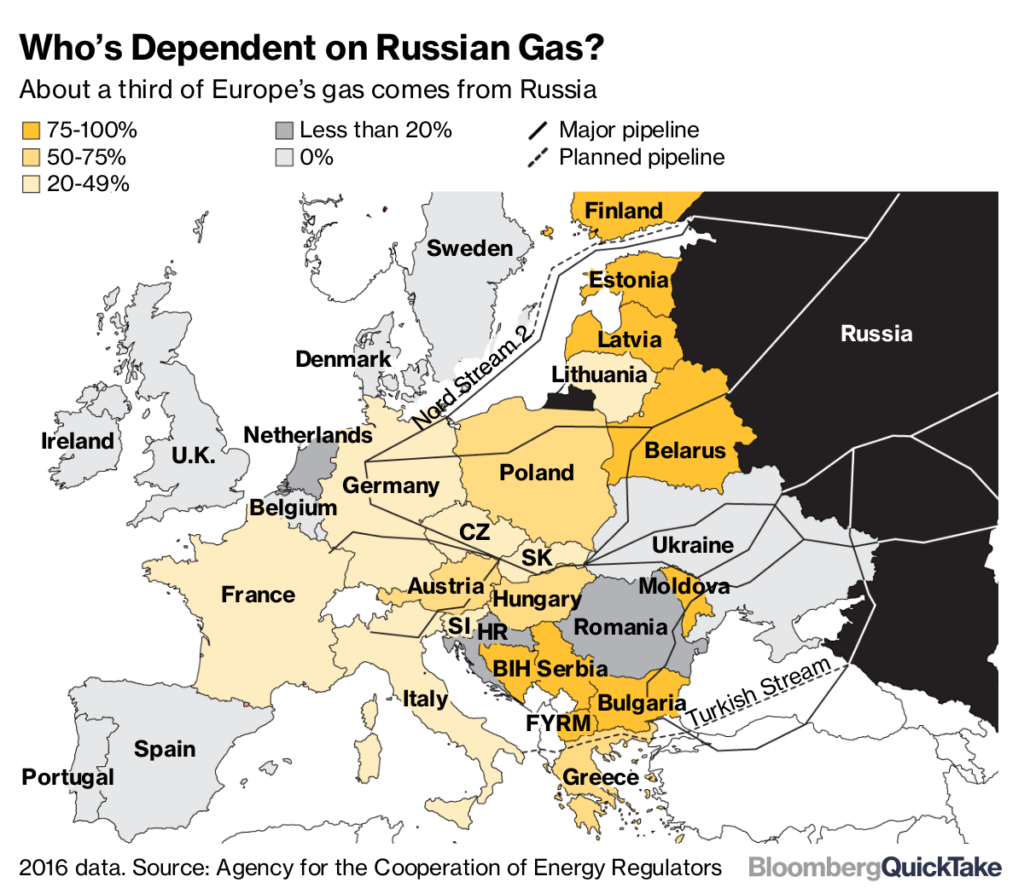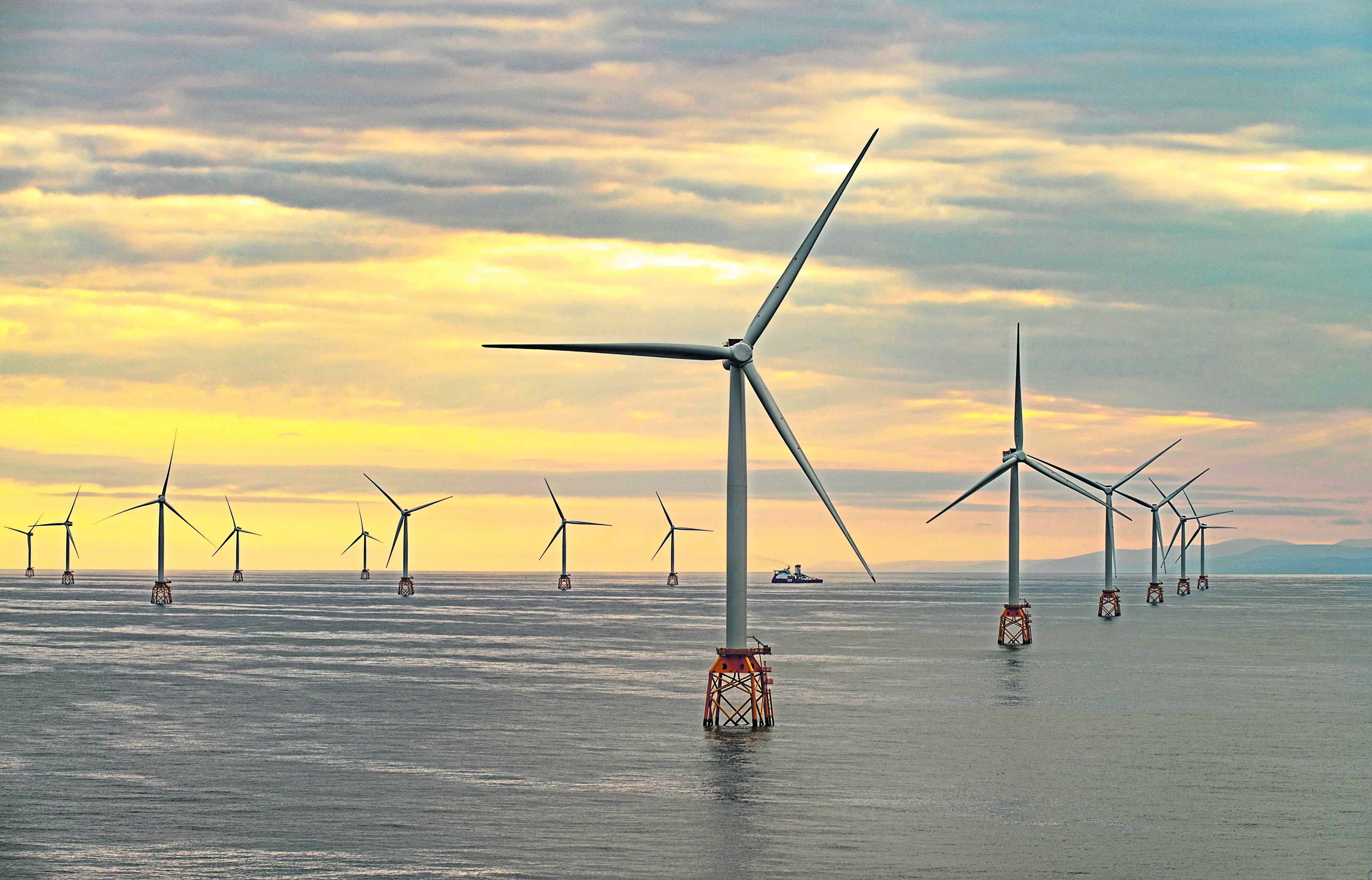
The company set up to build Russia’s new natural gas pipeline to Europe hit back at criticism from U.S. President Donald Trump, noting that building the link doesn’t require anyone to buy the fuel.
Nord Stream 2 AG, which has started construction work on the project that will bring gas from Russia into Germany via the Baltic Sea, said that the pipeline has been built according to European Union and national law and will sell gas to Europe at market prices.
Trump on Wednesday made a strong attack on Germany’s dependence on Russian natural gas, saying the Nord Stream 2 pipeline shows Europe’s largest economy is “totally controlled by Russia.”
“It’s very sad when Germany makes a massive oil and gas deal with Russia where we’re supposed to be guarding against Russia and Germany goes out and pays billions and billions of dollars a year to Russia,” Trump said in a tense meeting with Jens Stoltenberg, the general secretary of the North Atlantic Treaty Organization in Brussels.
Nord Stream 2 pushed back against Trump’s comments, noting that the pipeline route doesn’t come with a requirement that Germany purchase the gas that’s shipped in.
“The Nord Stream 2 pipeline will add supply options — not buying obligations,” the company said in a statement. “Just like any commercial offering, the pipeline will only be used by customers if the seller offers natural gas at a price the market can support.”
Tensions between Washington and Berlin over the pipeline flared in May, with State Department envoys warning that the U.S. might impose sanctions to prevent the Gazprom-sponsored Nord Stream 2 pipeline. The U.S. has long had concerns that Europe is too dependent on Russian gas, and the cash it pays for that fuel helps pay for Russia’s military.
Trump highlighted those concerns in blunt language, though he didn’t mention sanctions.
“We’re supposed to protect you against Russia, but they’re paying billions of dollars to Russia, and I think that’s very inappropriate,” Trump said.
“Trade is wonderful, energy is a whole different story,” Trump said. “Energy is a much different story than normal trade.”
Trump’s attack on the Gazprom PJSC-backed pipeline followed dredging work that started in May to make way for the pipeline even as U.S. officials were threatening sanctions. The pipeline sections will be lowered into the Baltic Sea this summer, with the link expected to be operational by the end of 2019.
German officials have said they don’t expect the U.S. to sanction the pipeline, and Trump did not refer to sanctions during his heated exchange with Stoltenberg. Royal Dutch Shell Plc, BASF SE’s Wintershall unit, Uniper SE, OMV AG and Engie SA have agreed to provide Gazprom with financing for the project and could theoretically be hit by sanctions.
“I don’t think it (Nord Stream 2) should have happened, and we have to talk to Germany about that,” Trump said.
Trump is in Brussels to demand that the alliance’s European members sharply boost their defense to meet NATO’s spending benchmark of 2 percent of gross domestic product. Germany budgets about 1.2 percent of its GDP on the military, whereas the U.S. spends closer to 4 percent, a gap Trump has repeatedly criticized.
Russia supplies more than a third of Europe’s gas, and is increasing its market share. It’s the biggest single supplier of the fuel, and Gazprom’s shipments to the continent hit a record last year. Trump has said he would like to see an increase in U.S. exports of liquified natural gas.
Recommended for you
